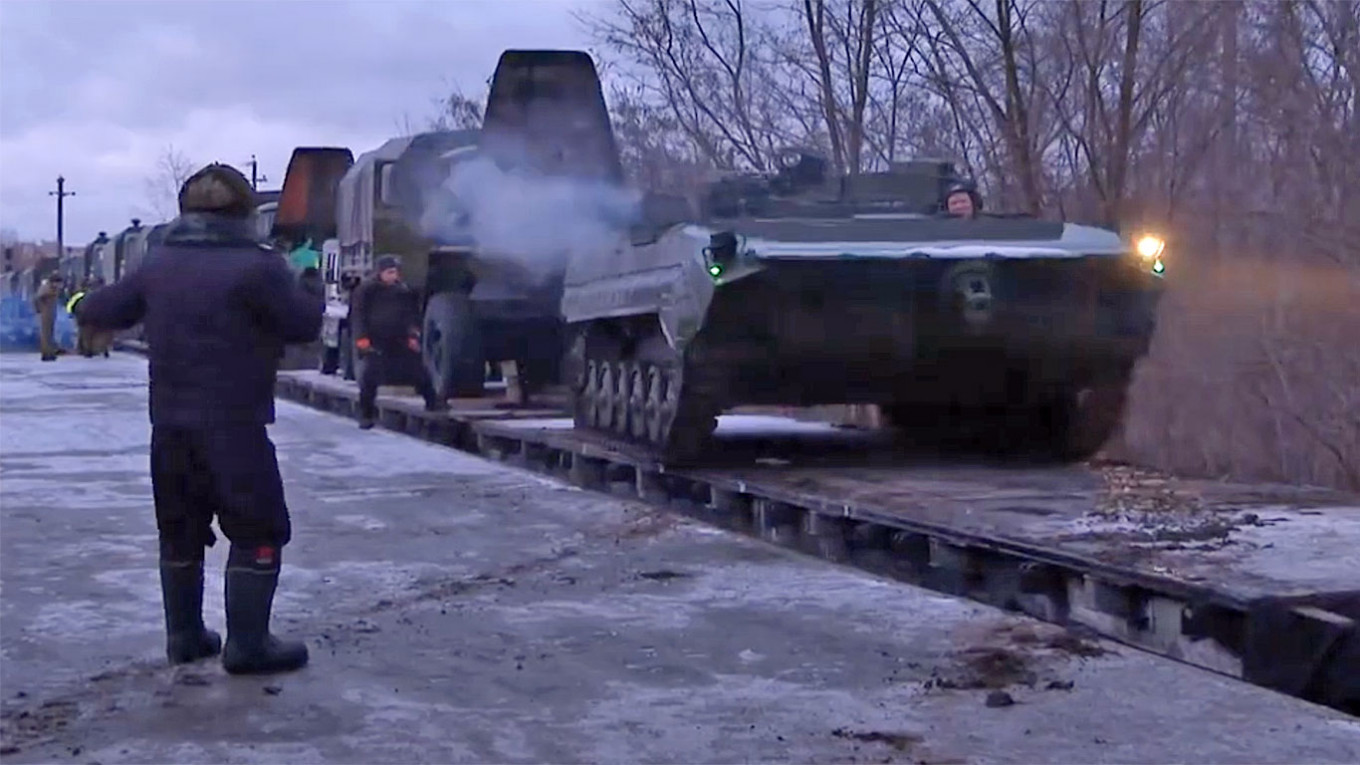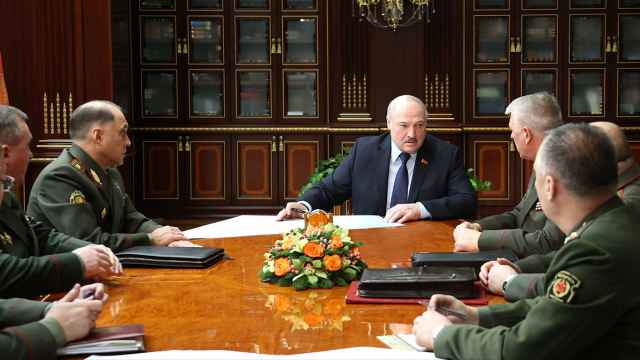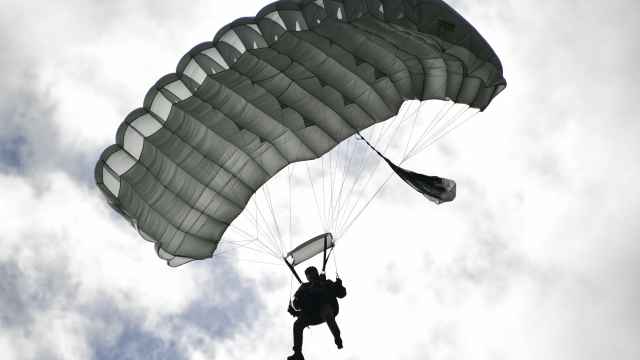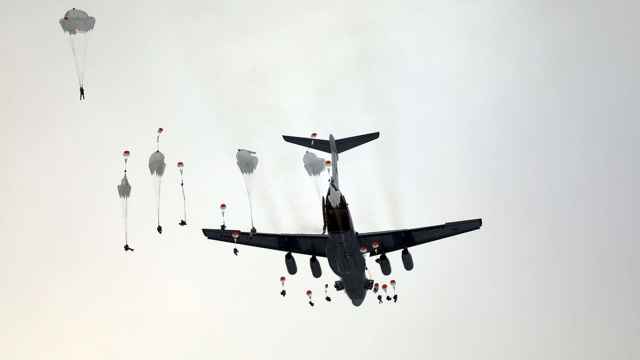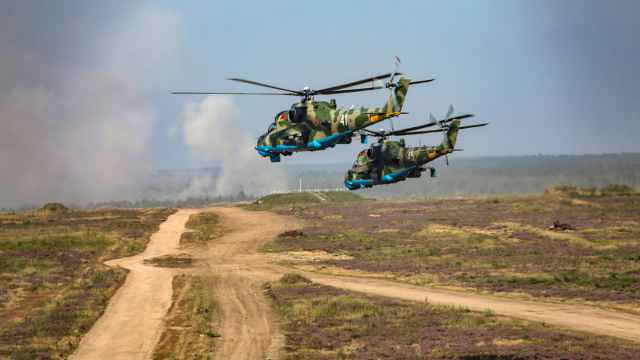Russian troops arrived in Belarus on Tuesday for snap military drills, as Moscow hosted Germany's foreign minister for the latest talks over fears of an invasion of Ukraine.
More than a week of negotiations between Russia and the West have done little to ease worries raised by the massing of tens of thousands of Russian troops on Ukraine's borders.
Adding to the tensions, Russia and Ukraine's neighbor Belarus launched a wave of military exercises, with video published by the Belarusian defense ministry showing columns of military vehicles including tanks being unloaded from trains blanketed in snow.
Germany's foreign minister Annalena Baerbock was in Moscow for her first one-on-one meeting with Russian counterpart Sergei Lavrov.
She came to Moscow fresh from Kyiv, where she told Ukraine's foreign minister earlier this week that Germany "will do our all to guarantee Ukraine's security."
Ukraine, the United States and the European Union have all raised deep concerns over the Russian troop build-up, despite repeated denials from Moscow that an invasion is planned.
Moscow has instead accused the United States and NATO of ignoring Russia's security concerns, and demanded that the security alliance permanently bar membership to Ukraine.
Kyiv has been at war with pro-Moscow separatists in the east of the country since 2014, when Russia annexed the Crimean peninsula from Ukraine after demonstrations ousted a Kremlin-aligned leader.
On the eve of Baerbock's Moscow trip, German Chancellor Olaf Scholz called on Russia to de-escalate tensions, warning that "military aggression against Ukraine would have serious political as well as economic consequences."
The Belarusian defense ministry said it was hosting the combat readiness drills because of the continuing "aggravation" of military tensions "including at the western and southern borders of the Republic of Belarus."
Britain sends weapons
Russian Deputy Defence Minister Alexander Fomin summoned dozens of foreign military diplomats stationed in Moscow — including 16 from NATO member countries — to announce the drills in Belarus, which he said were aimed at "thwarting external aggression."
He said that S-400 missile systems, which Russia has controversially sold to NATO member Turkey, would be deployed as part of the exercises in Belarus.
Moscow has not disclosed the number of troops participating in the drills, which Belarusian President Alexander Lukashenko earlier this week said were the result of growing military threats from neighbors Ukraine and Poland.
Russian negotiators met separately this month with delegations from the United States, NATO and the Organization for Security and Cooperation in Europe, in meetings that failed to produce any concrete results.
British Defense Secretary Ben Wallace announced in Parliament on Monday that Britain is sending weapons to Ukraine as part of a package that would help Kyiv secure its borders.
"Ukraine has every right to defend its borders, and this new package of aid further enhances its ability to do so," Wallace said.
The types of equipment being sent "are not strategic weapons and pose no threat to Russia," he said, describing them as "light, anti-armor, defensive weapon systems."
Kremlin spokesman Dmitry Peskov on Tuesday described the announcement of the shipments as "extremely dangerous" and "not conducive to reducing tensions."
Russia also on Tuesday also dismissed media reports that it was drawing down numbers from its diplomatic missions in Ukraine, saying that its embassy in Kyiv was operating normally.
The United States has warned Russia it faces sweeping economic measures if it invades Ukraine, a threat dismissed by Russia.
A Message from The Moscow Times:
Dear readers,
We are facing unprecedented challenges. Russia's Prosecutor General's Office has designated The Moscow Times as an "undesirable" organization, criminalizing our work and putting our staff at risk of prosecution. This follows our earlier unjust labeling as a "foreign agent."
These actions are direct attempts to silence independent journalism in Russia. The authorities claim our work "discredits the decisions of the Russian leadership." We see things differently: we strive to provide accurate, unbiased reporting on Russia.
We, the journalists of The Moscow Times, refuse to be silenced. But to continue our work, we need your help.
Your support, no matter how small, makes a world of difference. If you can, please support us monthly starting from just $2. It's quick to set up, and every contribution makes a significant impact.
By supporting The Moscow Times, you're defending open, independent journalism in the face of repression. Thank you for standing with us.
Remind me later.


